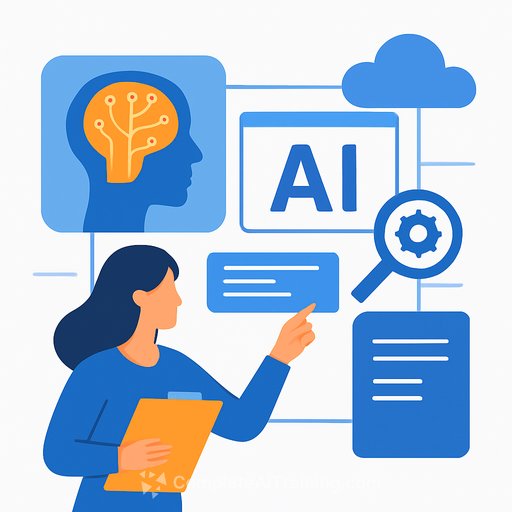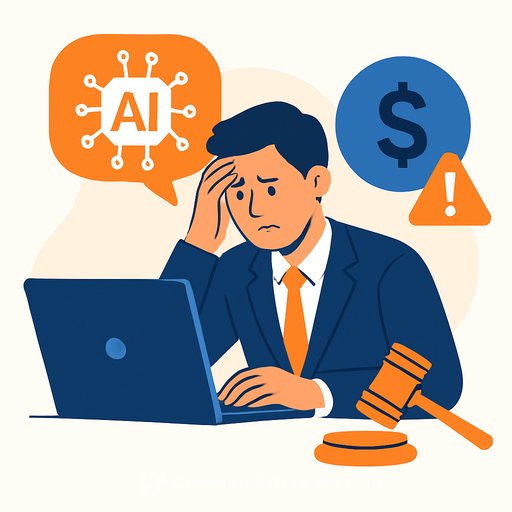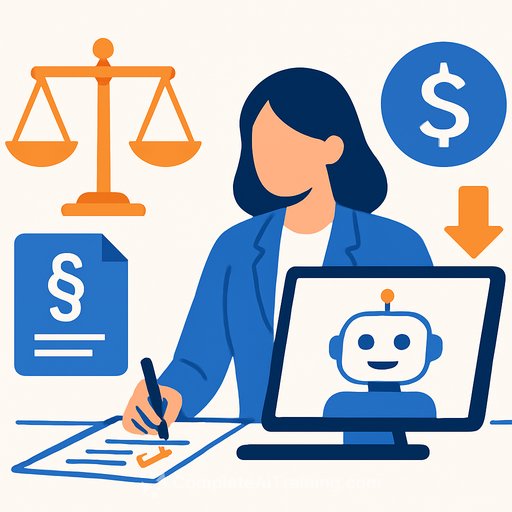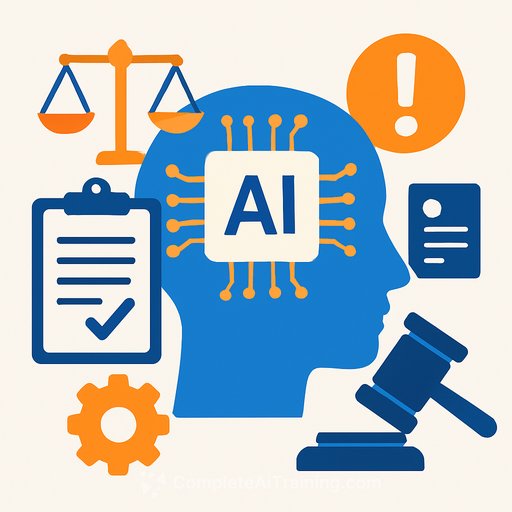Alexi AI's push to lead litigation tech with Advanced Legal Reasoning and private cloud
Alexi AI is aiming squarely at litigators with a clear promise: higher accuracy, lower research time, and data isolation that satisfies risk committees. Its Advanced Legal Reasoning (ALR), launched in January 2025, and single-tenant private cloud deployments are the core of that strategy.
According to the company, firms are seeing up to an 80% reduction in time spent on routine research and document review. With more than 600 mid-market to enterprise firms on the platform, the signal from the market is straightforward: reliable outputs and tight security are becoming non-negotiable.
What makes ALR different
Instead of a single general model, ALR orchestrates multiple specialized agents. Ask a complex question and the system routes tasks to the right agent set-statutory search, precedent mapping, financial extraction, or deep document analysis across tens of thousands of files.
Alexi's retrieval-first approach limits generation to sources it has already verified. A proprietary RAG pipeline narrows retrieval to a controlled body of case law, then uses generation to produce structured outputs with citations. This is aimed at reducing "hallucinations" and tightening research defensibility.
Security and deployment: single-tenant by default
Alexi's private cloud deployments use a single-tenant architecture (branded "Alexi Containers") so each firm runs an isolated instance. Client data stays within the firm's environment, is not used to train Alexi's general models, and remains under the firm's IP ownership policies for any custom models built on top.
Enterprise encryption and SOC 2 commitments align with legal industry expectations. For context on SOC 2, see the AICPA overview here.
How this plays against incumbents and AI-first startups
Thomson Reuters and LexisNexis are integrating generative AI into large proprietary libraries. CoCounsel from Thomson Reuters builds on Anthropic's Claude for document analysis and research, while Lexis+ AI taps deep content collections for drafting and search. See Lexis+ AI product details.
Alexi's bet is different: litigation-first reasoning, retrieval before generation, and single-tenant deployments that support firm-specific "AI stacks." That stance directly contests shared-service models popular with Harvey, Spellbook, and Legora, and targets litigators who prioritize accuracy and data isolation over broad, generalized assistants.
Early outcomes and feedback
Legal tech media and early adopters cite large research time savings and improved confidence in cited authorities. The most common request is deeper integrations with incumbent tools like DMS, CRM, and matter management.
Independent evaluations referenced by Alexi show an 80% accuracy rate, outperforming a 71% lawyer baseline and being 8% more likely to cite valid primary law. The focus is clear: verifiable answers first, synthesis second.
Roadmap: full litigation coverage and court-ready outputs
Near term, Alexi is moving into generation of court-ready pleadings and expanding its Workflow Library beyond 100 customizable workflows. The intent is full coverage across research, strategy, and procedural steps.
Longer term, the company points to firm-owned "institutional AI memory," opening the door to compounding advantages as models learn a firm's preferences and playbook. Leadership also sees a path to AI-driven binding arbitration with human oversight for appeals.
What matters for partners, litigation leads, and legal ops
- Define your risk envelope: single-tenant deployment, data residency, encryption, SOC 2, and explicit opt-outs from model training.
- Start with high-volume workflows: intake triage, research memos with citations, brief and motion support, discovery review, and deposition prep.
- Build evaluation guardrails: gold-standard benchmarks, citation validation, and red-team prompts to stress-test "edge case" questions.
- Integrate where lawyers live: DMS, knowledge systems, timekeeping, and matter management. Reduce tab-switching and context loss.
- Rethink billing: as cycle times drop, move fixed-fee or value-based where clients expect efficiency dividends.
Security checklist for GC, IT, and risk
- Confirm single-tenant isolation and key management model.
- Validate SOC 2 reporting, incident response, and audit trails.
- Ensure client data is excluded from general model training by contract.
- Map data flows: ingestion, retrieval indexes, generation, and export.
- Set review tiers: junior review, senior sign-off, and automated citation checks.
Limits and watch-outs
No system guarantees perfect accuracy. Keep human oversight on any filing, client communication, or strategic decision. Maintain a standard process for citation verification and fact cross-checks, especially on novel issues or thin precedent.
Privacy and regulatory expectations will continue to evolve. Assign ownership for policy updates, audit logs, and continual retraining on firm guidelines.
Where this leaves your firm
Litigation teams that operationalize retrieval-first AI and protect their data position will move faster with fewer mistakes. The competitive edge comes from the combination: accurate retrieval, firm-owned workflows, and disciplined review.
If your team needs structured upskilling on applied AI, consider curated training by job role here. Pair education with a tight pilot, clear success metrics, and a fast feedback loop.
Bottom line
Alexi AI is setting a high bar for litigation-focused reasoning and private deployments. For firms that care about precision, citations, and data isolation, the approach is aligned with how legal work actually gets done. The next phase-court-ready drafts and end-to-end workflows-will show which teams can turn AI into repeatable outcomes, not demos.
Your membership also unlocks:






